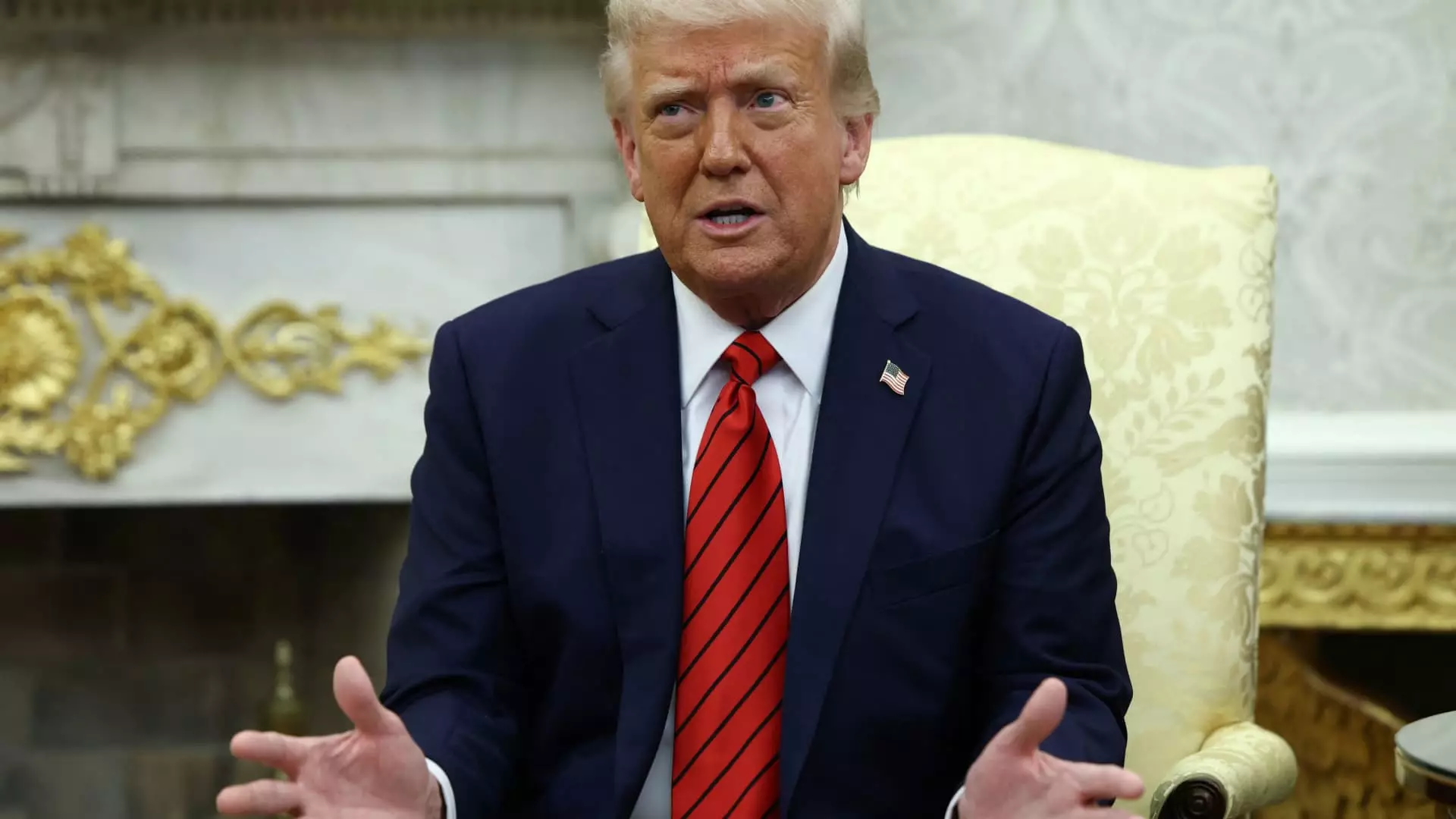In the chaotic realm of the stock market, the aftershocks of President Donald Trump’s April 2 tariff announcement are still roiling investor sentiment. Once aflame with anxiety, the investor community is now caught in a paradox of volatility and uncertainty. Even though the initial shock may appear to have worn off, individual stocks remain vulnerable and investor confidence teeters on a precarious ledge. The announcement of “reciprocal” tariffs did not just plant a seed of doubt; it unleashed an avalanche of speculation regarding trade wars and economic retribution. As we move further from the announcement date, the stark reality is that many companies may feel the brunt long after the initial news cycle has faded.
While the White House asserts that negotiations are ongoing with a collective of countries, the grim reality is the absence of tangible outcomes. The promise of discussions has failed to mitigate the anxiety surrounding these tariffs. Scott Welch’s assertion that “we don’t really have any outcome yet” is particularly telling. Investors are left grasping at straws, hungrily awaiting news of deals that seem far more elusive than promised. The markets are left to contemplate a worrying question: how long can this “wait-and-see” game continue before something gives way?
The Investment Hazard of Undefined Terms
One of the greatest challenges posed by these trade negotiations is the haze of ambiguity clouding their potential impact on individual companies. The lack of clarity surrounding sector-specific tariffs creates a perilous environment for investors who are putting their faith in stock performance. A prime illustration of this risk came when Nvidia announced a staggering $5.5 billion charge due to new export restrictions. The subsequent plunge of its stock serves as a cautionary tale; it’s clear that these undefined terms can have swift and catastrophic repercussions. As the market shifts, seeing volatility as consistent could soon become the norm.
Stacy Rasgon’s observation about the “Trump rug” offers another undeniable insight into the psychological impacts of these negotiations. Investors grapple with the unpredictability of how one headline could conceivably affect the entire tech sector or even broader markets. Trump’s proclivity to link these negotiations with various unrelated issues leaves many stocks exposed. A mere tweet can ignite a wildfire of trading activity and catastrophic loss.
The Global Shift Away from U.S. Assets
Compounding the anxiety is a conspicuous trend of global investors retreating from U.S. assets. Lawrence McDonald’s commentary about the “stop-start” nature of negotiations emphasizes that while U.S. retail investors may still be engaged, the diminishing willingness of foreign investors to stick around hints at deeper systemic concerns. This pullback indicates growing uncertainty regarding America’s economic influence in an increasingly globalized market. The associated pressure on key stocks only intensifies the sense of instability in what should be a flourishing market.
The circumstances suggest an alarming exodus. The fear of erratic policies and the threat of trade wars rearing their heads is enough to drive hesitant global investors away from the U.S. stock market. If other countries view U.S. policies as unpredictable, they may actively seek more stable investment opportunities elsewhere. This is a chilling scenario that paints a disconcerting picture of the future of American economic leadership.
The Corporate Earnings Conundrum
As we embark on another earnings season, the ramifications of tariffs are likely to surface with increased ferocity. Companies will be faced with the daunting task of distilling their exposure to these unpredictable conditions into projections. Some may take the somewhat cowardly path of providing dual forecasts to hedge against the unpredictable nature of future earnings while others may abstain entirely from forecasts—an act of desperation that only serves to stoke uncertainty among investors.
As Adam Parker notes, the stock market does not take kindly to companies that fail to meet or exceed expectations. The empirical evidence supporting the harsh penalties for negative earnings revisions weakens the resolve of executives to deliver anything less than optimistic forecasts. This has far-reaching implications since companies with exposure to tariff issues may get unjustly punished for factors outside their control. The ramifications of earning announcements could resonate like an ominous bell tolling for those companies caught in the tariff crosshairs.
In the eye of what feels like a financial storm, the stock market’s treacherous landscape remains fraught with challenges. Investors are duly advised to tread carefully; for every glimmer of hope, there lurks uncertainty—a complex duality that will shape the future of market performance amidst tariff tensions.


Leave a Reply